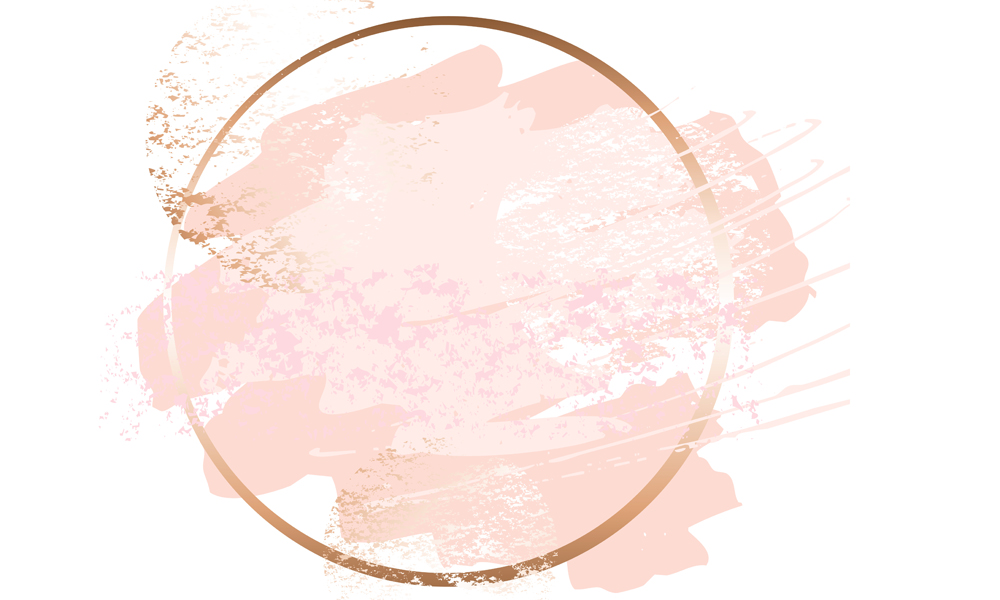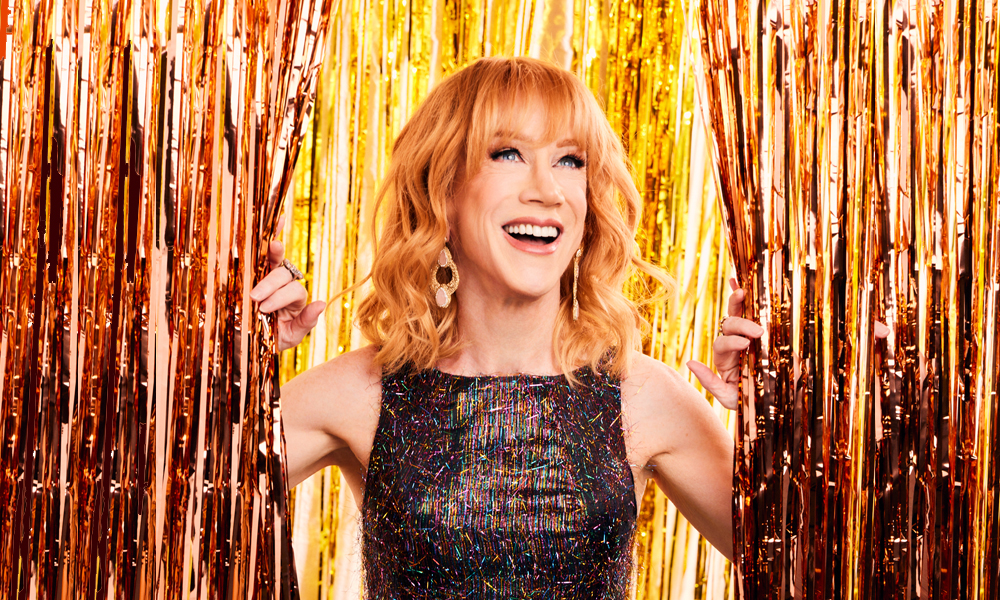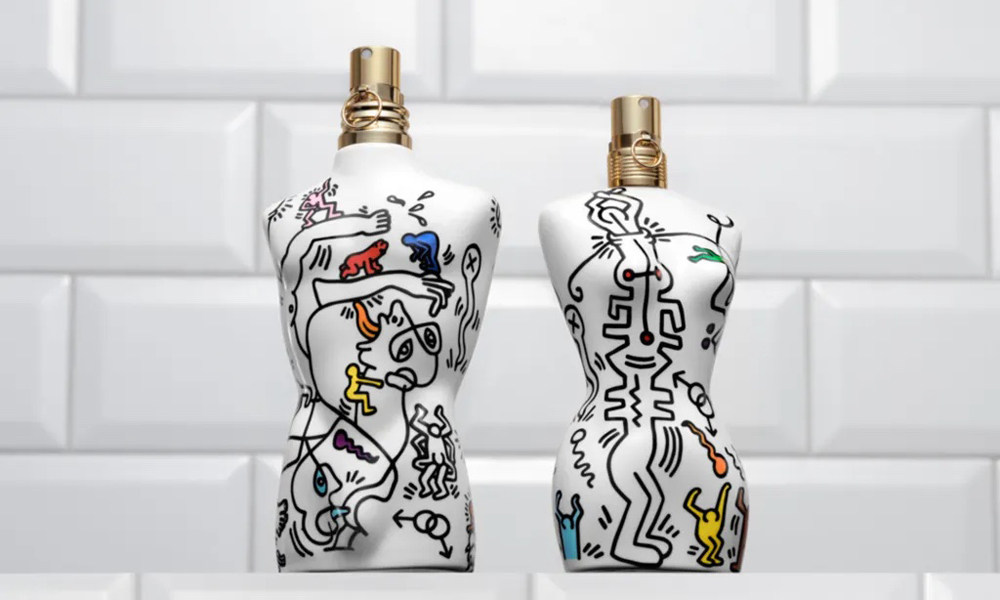With a rise in feel-good, do-good beauty and grooming product monikers like “Genius Sleeping Collagen,” “Fresh Balls” and “Swagger, Red Zone,” how do you know when to buy, apply and believe?…
By Adriana Ermter
“Orgasm.” “Hope in a Jar.” “Beautiful.” “Pore Delete.” “Megababe.” “Better Than Sex.” These are just a sampling of names from the swell of products flooding the marketplace, each one defining a specific product: a blush, night cream, perfume, serum, deodorant, mascara and more. Their promise-filled labels claim to irrevocably improve your sex life, halt the aging process, boost your self-esteem, stroke the ego. Yet promises like this raise the question: when did skin care, cosmetics and fragrance become our bartender, therapist, BFF and emotional support product rolled into one?
For Parisian perfume house Guerlain, the answer is 1889. After 61 years and a series of unisex scents, the brand took a more emotional approach to naming its next perfume, “Jicky.” The warm and spicy fusion for women was, if legend is true, the namesake of founder Aimé Guerlain’s prep school crush. For that and for the parfum’s inclusion of synthetic ingredients (a big deal in the1800’s sea of eau naturelle), “Jicky” was an instant hit. Its success seemingly influenced the luxury brand to use a heartfelt approach when labelling its ensuing 400-plus-and-counting scents, complete with 1908’s “Rue de la Paix” (Road to Peace), 2005’s “Attrape Coeur” (Captured Heart) and 2015’s “Le Plus Beau Jour de ma Vie” (The Best Day of My Life).
“Products with very specific names succeed with buyers,” affirms Emily Lyons, a Canadian entrepreneur and the CEO and founder of Femme Fatale Media and True Glue Beauty. “They are perceived as being unique and outside of the box, while targeting a certain need or specific problem.” And, boy, do we want their promises to be true. So we buy and try products with the names and claims that appeal to our sense of need, want and, even, what we feel we lack. Gillette “SkinGuard Razor”: who doesn’t need that? Olay Regenerist “Luminous Brightening Cream Cleanser”? Yes, please! David Mallett “No.2 Spray Le Volume”? Your thin hair will thank you. “There is a psychology behind it, and placebo is a very real thing,” adds Lyons. “You convince yourself it’s amazing before you’ve even tried it.”
As proof of label persuasion, one Nuxe Rêve de Miel “Ultra-Nourishing Lip Balm” sells every 28 seconds worldwide. A 15-second video featuring Pantene’s Pro V “Rescue Shots” has been viewed nearly 100,000 times on YouTube in less than 11 months. Shiseido’s self-proclaimed hero serum, Ultimune “Power Infusing Concentrate,” is bought every 13 seconds, and Sand & Sky sold 50,000 tubs of “Brilliant Skin” in its first eight weeks.
“Who doesn’t want to be radiant, wrinkle-free or whatever else people are looking for,” explains Lauren Wolff, a registered psychotherapist and former beauty and grooming public relations expert in Toronto. “There’s a sense of belonging to these types of product names. All people are doing it and seeing results, so the thought is, I must be too. Combine that with hope for what the product promises will transpire on your face or hair or otherwise, and you have the ultimate beauty and grooming product.”
The right name can also conjure memories or feelings that evoke emotion and become the anchor to help tell your story, says Joanne Bletz, global senior vice president of Calvin Klein fragrances in New York City. “It reflects a certain persona, which allows consumers to identify with it on a more personal level,” she adds. More times than not, these personal stories share elements with the narrative the product is conveying, so purchasing and using it feels like a natural extension of our self – or the self we one day hope to be.
Acceptance and cool-girl inclusion has been Benefits Cosmetics’ hook, line and sinker since1975, when the brand was a mere rectangle of counter space called the Face Place. Its solution-oriented, cheeky names, such as “POREfessional” and “They’re Real, Lengthening Mascara,” lean on the power of tongue in cheek to draw in both women and men, to make them laugh and feel confident and comfortable in their own skin. A sense of well-being, balance and gratitude fuel Philosophy’s approach with their aptly named skincare “Ultimate Miracle Worker” and “Time in a Bottle.” Others, like the Bearsville Soap Company, tap into gender ideation through curated packages of handcrafted soaps titled “The Lumberjack” and “The Outdoorsman,” while companies like Billy Jealousy apply results-based monikers, such as “Hydroplane Super Slick Shave Cream,” “Hair Raiser Follicle Revitalizer” and “Beard Envy Refining Kit.”
“A really catchy name gets the initial interest in the product,” explains Lyons. “With over-saturation in the market, just having a great product isn’t enough. You need to get people to try your product and then, hopefully, word of mouth takes over.”
Words like Calvin Klein’s “Obsession,” “Eternity” and “Euphoria” do the trick. They’ve been capturing consumer interest since Brooke Shields wore nothing but her designer jeans and Mark Wahlberg shared his “Good Vibrations” with the Funky Bunch. The emotion-based names have paid off, both for the brand and for customers, with increased consumer loyalty and product longevity – the three fragrances have been staples on retailers’ shelves since their respective launches in 1985, 1988 and 2005.
Currently, the all-American brand is hoping for another bestseller, this time imparting inclusivity, self-expression and acceptance through their new CK scent, Everyone.
“Emotive names are meaningful and relatable,” explains Bletz. “They speak directly to consumers and convey a sense of what they might feel when wearing our fragrance. We take this into account when we create our fragrances and their universes, tailoring each one to the emotion we are trying to convey and how consumers will interpret them.”
The right name can seal the deal
When customers don’t connect the dots, however, flat-line sales result along with the discontinuation of said cologne, lipstick or balm. In a whopping US$532 billion industry (which Forbes predicts will grow to US$800 billion by 2025), new bottles and tubes can’t wait for Manny Mua, Robin James (a.k.a. Man for Himself) or Cassandra Bankson to give them a shout-out on Snapchat, TikTok or YouTube. They need to stand out and stand strong in both brick and mortar and on the brand’s social media platforms.
“Having a relatable and possibly even an aspirational label can be appealing to someone who is having difficulty making a choice,” affirms Wolff. “There’s so much to choose from, how do you know what you want? Well, when the name of the product answers the question for you, it makes decision-making easy and helps validate the consumer, making them feel good about their choice.”
Brand newbs with to-the-point names like This Works, Nécessaire and First Aid Beauty are taking Shakespeare’s “What’s in a name?” question literally, hopeful their transparency will earn immediate consumer trust. In actuality, though, all beauty and grooming products, regardless of what they’re called, are held to and measured by a set of transparent, ethical standards sanctioned by companies including the US Food and Drug Administration, the US Federal Trade Commission, Competition Bureau Canada and Health Canada, to name a few. With the efficacy of every pimple buster, fine-line eraser and collagen plumper on the line, formulations must live up to marketing claims or risk being sent back to the laboratory.
“These ethical standards are real and they’re enforced when making consumer products,” says Wolff. “So when the brands are telling you they’ve created hope in a jar or say this is the only shampoo that works, they genuinely believe their product is the miracle they think it is. It just makes sense they would then name it the way they see it and feel it.”
Being emotionally invested in your next hand lotion or face oil is also low-risk behaviour. You can take the product back if it doesn’t work, since most retailers have a return policy. But if it does provide the results you’re seeking by living up to its claims, well, that’s a whole different name game and one that frequently provides all the good feels. And in our current instant gratification climate, this emotional connection is often the only success barometer that matters.
“In our swipe right, swipe left culture, the only sure thing we have is our emotional investment in ourselves and, as an extension of that, the products we use to help define who we are,” says Wolff. “So if we can find hope in a face cream, well, then we’re going to pay attention to that. It’s our ego’s defence mechanism, and there’s nothing wrong with wanting to believe.”
—
ADRIANA ERMTER is a Toronto-based, lifestyle-magazine pro who has travelled the globe writing about must-spritz fragrances, child poverty, beauty and grooming.

Looking Good: The Name Game
Related Articles
Kathy Griffin Is Back On The Road, And Feistier Than Ever
After six years, the award-winning comedian is back on the road for her My Life On The PTSD-List tour, which includes stops across Canada
Photo Gallery: The Enchanté Network’s National Black 2SLGBTQI+ Futures Summit
Highlights from Canada’s largest convening of Black 2SLGBTQI+ leaders and movement makers
Jean Paul Gaultier’s Pride 2024 Perfume Bottles Get The Keith Haring Treatment
Available starting May 15, Jean Paul Gaultier’s “Classique” and “Le Male” Pride bottles honouring the work of Keith Haring will be on shelves for a limited time





POST A COMMENT